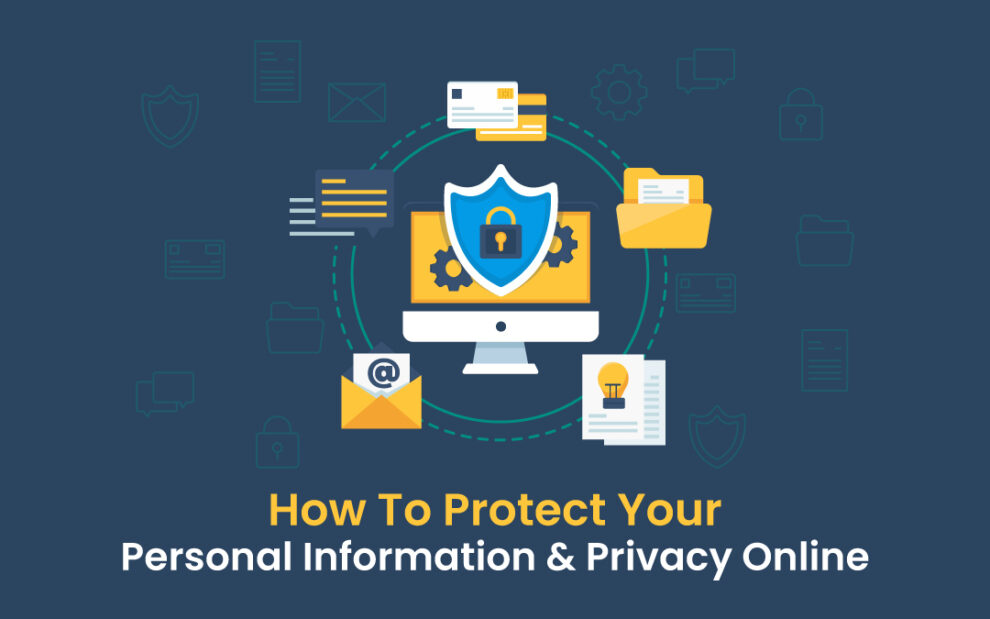In today’s digital world, protecting personal information online has become more critical than ever. Cybercriminals and hackers are constantly finding new ways to steal sensitive data, leading to identity theft, financial fraud, and privacy breaches. Whether you’re shopping online, using social media, or simply browsing the web, safeguarding your personal information should be a top priority. In this guide, we will explore how do I protect my personal information online, covering essential tips and best practices.
Why Protecting Personal Information Online is Important
Your personal information, including passwords, banking details, and even browsing habits, can be exploited if it falls into the wrong hands. Here’s why online privacy matters:
- Prevents Identity Theft: Cybercriminals can use your data to impersonate you and commit fraud.
- Secures Financial Information: Unauthorized access to your bank accounts can lead to financial losses.
- Protects Your Reputation: Sensitive information leaked online can damage your personal and professional life.
- Ensures Online Safety: Avoids cyber threats like phishing, malware, and social engineering attacks.
By following simple yet effective security measures, you can significantly reduce the risk of cyber threats.
How Do I Protect My Personal Information Online?
1. Use Strong and Unique Passwords
One of the most effective ways to protect your personal information online is by using strong, unique passwords for each of your accounts.
Tips for Strong Passwords:
- Use a mix of uppercase, lowercase, numbers, and special characters.
- Avoid common words, names, or easily guessable phrases.
- Use a password manager to generate and store complex passwords securely.
- Enable two-factor authentication (2FA) for an added layer of security.
2. Be Cautious with Public Wi-Fi
Public Wi-Fi networks, such as those in coffee shops and airports, are often unsecured, making them a hotspot for hackers.
How to Stay Safe on Public Wi-Fi:
- Avoid accessing sensitive accounts, such as banking or email, on public networks.
- Use a Virtual Private Network (VPN) to encrypt your internet connection.
- Turn off automatic Wi-Fi connections on your device to prevent unauthorized access.
3. Recognize and Avoid Phishing Scams
Phishing is a common cyber attack where scammers trick you into revealing personal information.
How to Spot Phishing Emails:
- Look for generic greetings like “Dear Customer” instead of your name.
- Check the sender’s email address for slight misspellings or unfamiliar domains.
- Avoid clicking on suspicious links or downloading unknown attachments.
- Verify requests for personal information directly with the company.
4. Limit the Personal Information You Share Online
Social media and online platforms encourage sharing, but oversharing can put you at risk.
Tips to Protect Your Privacy:
- Adjust privacy settings on social media to restrict who can see your information.
- Avoid posting sensitive details like your home address, phone number, or financial information.
- Be mindful of what you share in online forums and public discussions.
5. Enable Security Features on Your Devices
Protecting your personal information online also involves securing your devices against unauthorized access.
Essential Security Measures:
- Use biometric authentication (fingerprint or face recognition) where available.
- Keep your operating system, software, and apps updated to fix security vulnerabilities.
- Install reputable antivirus and anti-malware programs.
- Set up remote wipe capabilities in case your device is lost or stolen.
6. Use Secure Websites for Online Transactions
Shopping and banking online require extra caution to prevent financial fraud.
How to Identify Secure Websites:
- Check for “HTTPS” in the website URL (the “S” stands for secure).
- Look for a padlock symbol in the browser’s address bar.
- Avoid entering payment details on unfamiliar or poorly designed websites.
- Use virtual credit cards or payment services like PayPal for added security.
7. Regularly Monitor Your Financial and Online Accounts
Keeping track of your accounts helps detect unauthorized activities early.
Best Practices:
- Set up account alerts for unusual transactions.
- Review your bank and credit card statements frequently.
- Report any suspicious activity to your financial institution immediately.
- Use credit monitoring services to check for identity theft signs.
8. Protect Your Email and Cloud Storage
Your email and cloud storage contain valuable information that should be protected from cybercriminals.
How to Secure Your Email:
- Enable two-factor authentication (2FA) for email accounts.
- Avoid opening emails from unknown senders.
- Use encrypted email services for confidential communication.
Securing Cloud Storage:
- Choose cloud services with strong encryption.
- Set up access restrictions for shared files.
- Regularly back up important data offline.
9. Be Aware of Social Engineering Attacks
Cybercriminals use psychological manipulation to trick people into revealing personal details.
How to Prevent Social Engineering Attacks:
- Be skeptical of unsolicited phone calls or messages requesting sensitive information.
- Verify the identity of individuals before sharing any personal data.
- Educate yourself and your family about common social engineering tactics.
10. Regularly Clear Your Browser Data and Cookies
Websites collect data about your browsing habits, which can be used for tracking and profiling.
Steps to Enhance Browser Privacy:
- Clear cookies and browsing history regularly.
- Use privacy-focused browsers like Brave or Firefox.
- Enable Do Not Track settings in your browser.
- Consider using browser extensions that block trackers.
Conclusion
In today’s digital landscape, learning how do I protect my personal information online is essential for maintaining security and privacy. By implementing strong passwords, avoiding phishing scams, using VPNs, and being cautious about sharing personal details, you can significantly reduce the risk of cyber threats. Taking proactive steps to secure your devices, monitor financial accounts, and stay informed about emerging security threats will help keep your online identity safe. Protecting your personal information online is an ongoing process—stay vigilant, stay secure.




